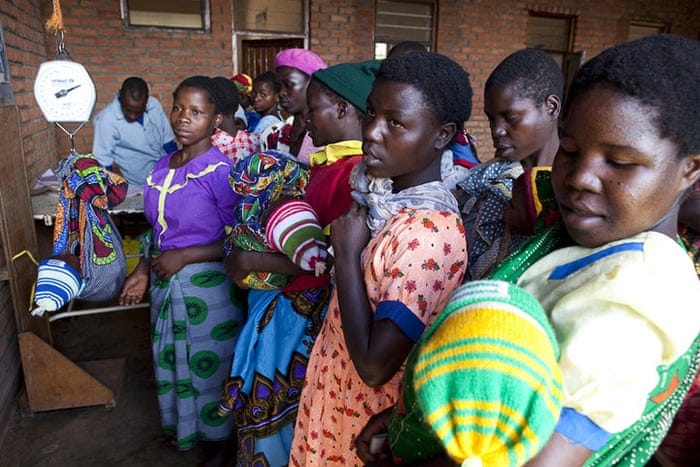Male Involvement in Maternal Health Care Reduces Maternal Mortality and Improves Prenatal Care in Rumphi
Many women in rural areas have difficulty accessing maternal health care due to the long distance to a healthcare unit and cultural practices that prevent them from seeking care.
Malawi: The maternal mortality rate in Malawi is a major issue, and the country must address it to prevent unnecessary deaths of women, writes Susan Moyo.
Many women in rural areas have difficulty accessing maternal health care due to the long distance to a healthcare unit and cultural practices that prevent them from seeking care.
The 2015-2016 Demographic and Health Survey shows that the maternal mortality rate improved from 675 per 100,000 live births in 2011 to 439 in 2016.
If this trend continues, the country will achieve the Sustainable Development Goal of reducing the global maternal mortality ratio to less than 70 per 100,000 live births by 2030, with no country having a ratio greater than 140 per 100,000.
To achieve this goal, various interventions are needed, including continued financial support and the breaking of cultural and social norms that prevent women from accessing quality prenatal care from specialized personnel.
Studies show that male involvement in maternal health can be beneficial, including motivating expectant women to seek medical care when they are sick and preventing sexually transmitted diseases.
Rumphi district group village headmen Mtembe-lembe of traditional chief Njikula Mkandawire stated that they are working to reduce maternal mortality in their area and have even implemented bylaws to punish men who refuse to accompany their pregnant wives to antenatal clinics.
Mtembe-lembe explained, "We encourage men to escort their wives to seek antenatal care services from clinics and hospitals when they are pregnant, and if a woman delivers a child at home or on her way to the hospital, she has to pay 20,000 to the hospital as a punishment, and back home the family has to pay one goat to the chief for defying the laws. If a man refuses to escort his pregnant wife to the antenatal clinic, he has to pay a goat to the chief."
He added that the maternal mortality rate has decreased in his area over the past few years due to male involvement in maternal issues.
Webster Mwamlowe, an antenatal male champion from Mtembe-tembe village, shared that he initially had difficulty accepting the importance of male involvement in maternal health, but now understands the role men play in the health of an unborn child.
He said, "I don't have a problem escorting my wife to the antenatal clinic because we both have a responsibility to take care of the unborn child, and let me encourage my fellow men to change their mindset towards maternal health issues."
Chrissy Manda, a 27-year-old expectant woman from Chakalipa village, shared that she feels good when her husband escorts her to seek antenatal care.
She said, "I am delighted with this initiative because our husbands can now better understand the requirements we pregnant women need, unlike in the past when we said we needed new wraps (zitenje) or nutritious food and they didn't understand us. It is good that these men now can hear from specialized antenatal service providers."
A nurse at Jalawe health centre, Abishai Ngona, praised the initiative of chiefs who punish men who refuse to escort their spouses to seek antenatal care.
He said, "Some decisions are better made by both a husband and wife, therefore male involvement is paramount as far as maternal health is concerned, and progress has also been made on stopping mothers from giving birth at home or under unskilled midwifery."
Ngona added that male involvement has reduced the number of women giving birth at home or with unskilled midwives because men are now able to recognize the danger signs for their wives due to the information they have received.



